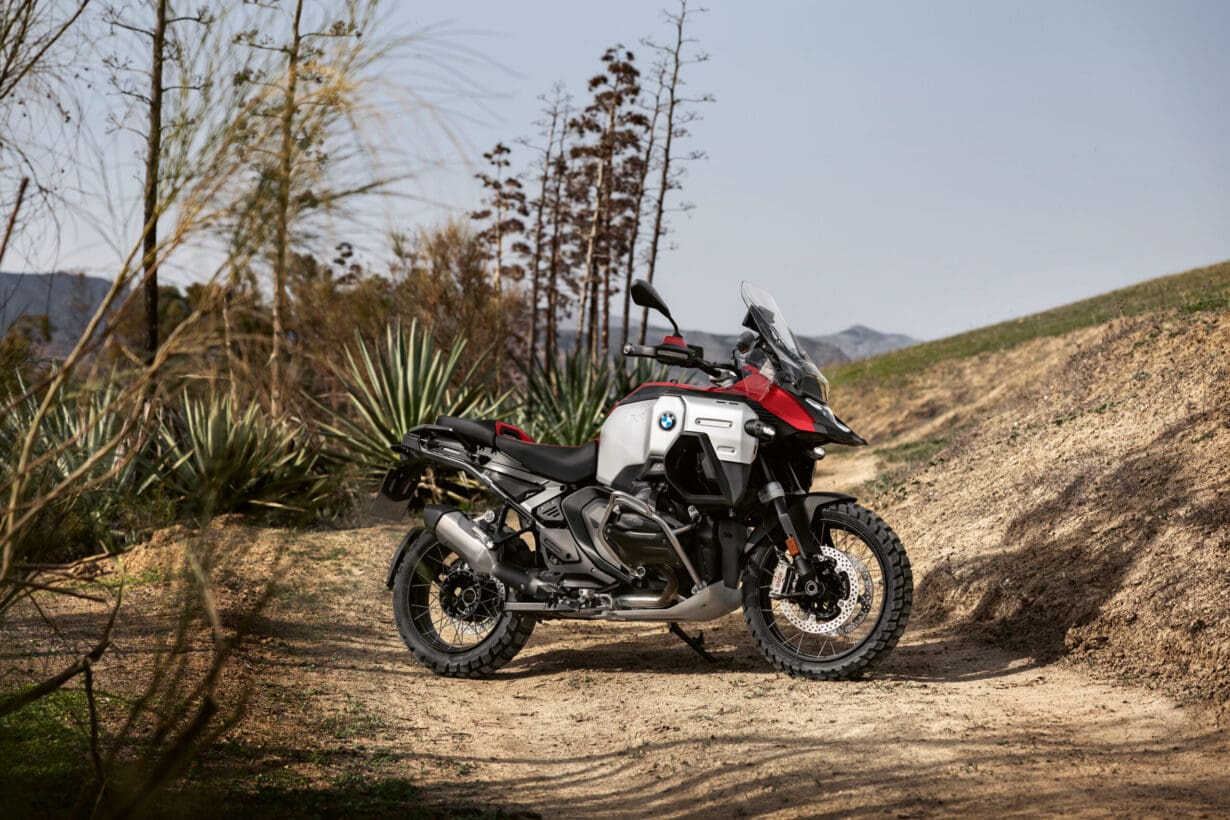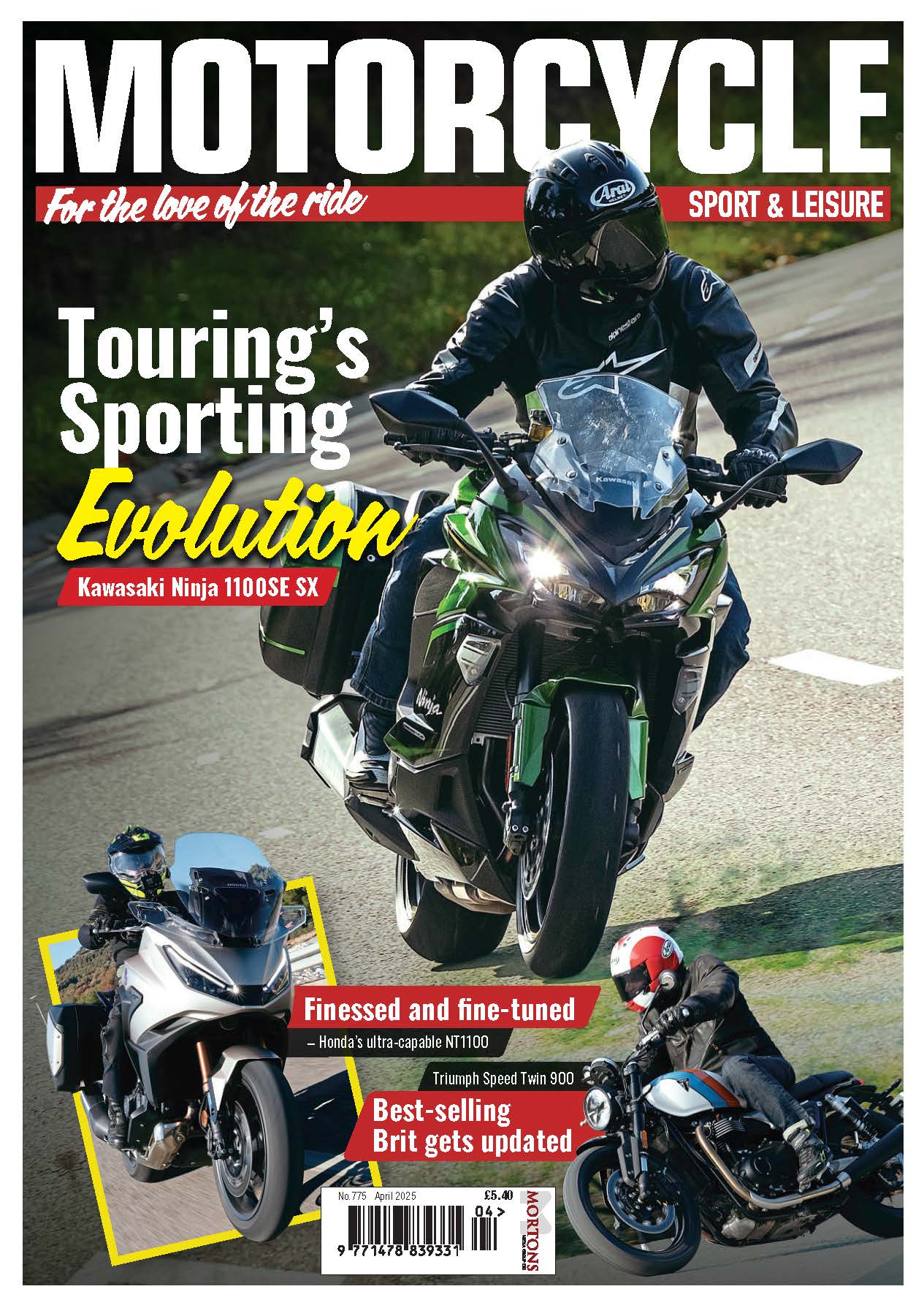BMW’s just launched the latest version of its ever-popular adventure-specked GS – and this time you can add a semi-automatic gearbox from the extensive parts catalogue
Ever since BMW launched its new R1300GS, we’ve been quietly waiting for the big reveal of its latest fully loaded off-road-ready beast. And it’s finally happened, with the Bavarian brand whipping the covers off the R1300GS Adventure at this year’s Motorrad Days festival over in the motherland.

Just like the standard GS, the new Adventure is a big departure from the old model. It looks like an entirely different motorcycle – and although there’s a good chance it won’t be to everyone’s tastes, the GS was definitely due a visual update.
Enjoy everything MSL by reading the monthly magazine, Subscribe here.
And as you’d expect, it’s all for good reason. The Head of BMW Motorrad Development, Christof Lischka, said: “Never before have seating comfort, ergonomics and wind and weather protection been so harmoniously combined with precise handling, exceptional suspension comfort and smooth running.” Sounds good to us.
It shares plenty with the standard GS. The beating heart of the bike is its 1300cc boxer motor, which’ll come in largely the same state of tune. But there’re plenty of differences, too. For one thing, the fuel tank’s a whopping 30 litres, which means it’s heavier (tipping the scales at a claimed 296kg) and wider. A nice touch on the tank are the three mounting points, which’ll make it easy to fix BMW’s aftermarket tank bag into position.
There’s some luggage as standard though, in the form of a solid aluminium 37-litre topbox, and a pair of panniers with 73.5 litres of storage space between them (and the left one even has a built-in USB charger).
The suspension’s different, too. It uses a more rigid EVO Telelever and Paralever system and the front and rear respectively, but it’s also kitted out with Dynamic Suspension Adjustment. It’s essentially a semi-active system which adjusts damping and spring rate on the fly to keep things smooth. It’ll also adjust the spring rate based on how much you’ve got loaded up on the bike. Clever stuff.
There are bags of electronic goodies to play with and benefit from. It gets self-lowering suspension; four riding modes (with Enduro costing a little bit extra); hill hold control; cornering ABS; heated grips; and keyless ignition. As always, there’re plenty of extras to choose from, too. One of them is particularly interesting. It’s an Automated Shift Assistant (ASA) function, which, like Honda’s DCT system, removes the need for a clutch. It doesn’t come cheap though and will up the price of the GSA to £21,300.
Without it, the base model GSA is priced at £18,870. While it’s a good chunk of change and more expensive than the outgoing R1250GS Adventure, which you could get your hands on for a not insignificant £16,360, there’re bags of changes that take the flagship GS even further.






